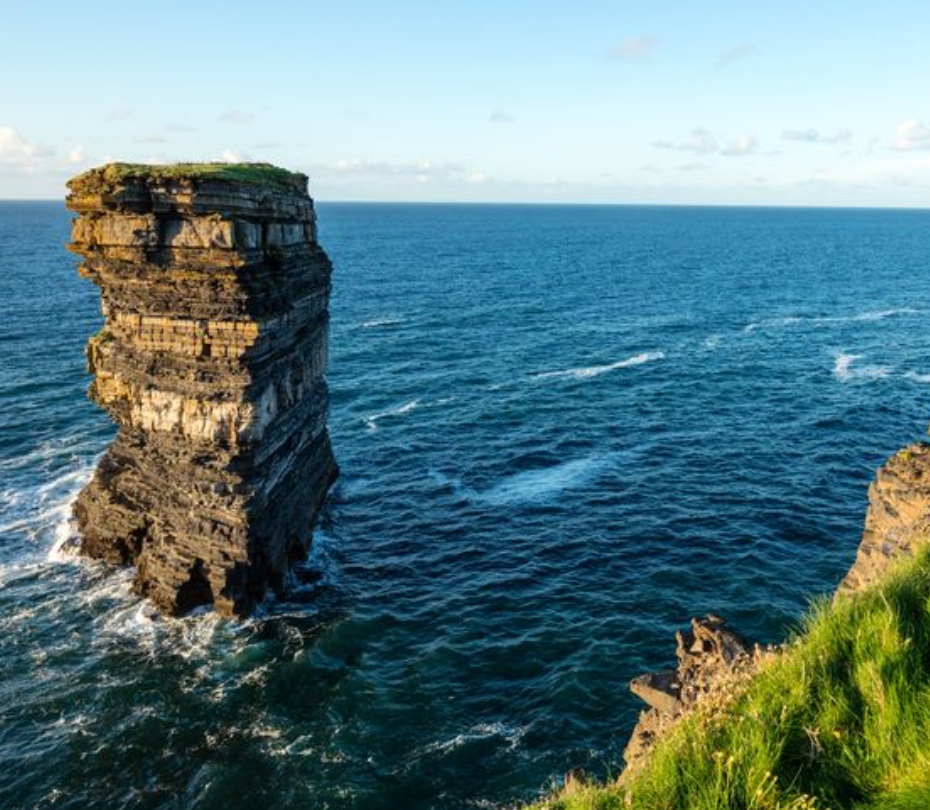Giovanni Marenghi
1897-1940
Bardi, Parma

Alfonso Pacitti
March 2024
This short piece has been extracted from a much longer article by Anthony Hickey
to be found on his website
'A MAYOMAN'S DIARY".
The full article can be accessed
here
and is entitled:
The Tides of War, Mayo and the
Battle of the Atlantic 1939-45.
SS Arandora Star
Discussing the valuable wreckage from the war being salvaged by coastal dwellers, in the
edition of July 20, 1940, the Western People’s Ballina correspondent in a prescient comment
wrote following an unseasonable gale on Thursday night, July 11, 1940:
“As if anxious to reward the watchers, nature has provided unusual north-westerly gales
during June and July and I shall be surprised if there is not new arrival on our shores to
record after a fierce gale which lashed the seas into a fury from the north-west on Thursday
night of last week.”
The reporter could never have realised the scale of the tragic offerings that wind and tide
were about to send to Mayo shores. By the start of August 1940 evidence of the magnitude of
the horror of the war at sea shocked coastal communities when bodies from SS Arandora
Star, sunk by U-47 off Co. Donegal, were washed up with sickening regularity on beaches
along the west coast.
Sailing without an escort, the large passenger-cargo-liner had left Liverpool for Canada on
July 2, 1940, and had 479 German internees, 734 Italian internees, 86 German prisoners-of-war,
and 200 military guards on board. She was sunk by a single torpedo with the loss of 805 lives.
HMCS St. Laurent, alerted by Malin Head radio station, which had received the distress signal
from the sinking ship, rescued 119 crew members, 163 guards and 586 Italians and Germans.
The survivors were landed at Greenock, Scotland.
North-westerlies brought the bodies of Italian internees and their young British soldier
guards, towards the Mayo coast and complex interaction of wind, currents and tides washed
the sea-ravaged remains ashore; the scale of the sea-borne carnage had never before been
witnessed.
The first bodies from Arandora Star tragedy came ashore in Mayo at Altdarrig, near Carne Golf
Links, early on a drizzly Tuesday morning, July 30, 1940. Local men, including three priests,
came to the shore after the body seen floating in the surf was recovered by John and Patrick
Joseph McAndrew, Binghamton, James Cawley and Joseph Lynskey of Cross. 12
Tears were shed by some among the hushed circle of onlookers when the body of Giovanni
Marenghi (43) was brought ashore and his few worldly possessions, tokens of a simple life,
were laid out on the strand to identify the remains. It was immediately obvious he was a
victim of Arandora Star as around the neck was a “Star” life-jacket. Marenghi was one of
the hundreds of hardworking Italians in the UK who were so callously rounded up and
interned after Italy sided with Germany and fears of an imminent invasion swept Britain.
Giovanni Marenghi’s possessions consisted of:
- green ship’s berthing card (No 159 in pencil on the back)
- receipt for 2/6 signed by J. Harris, Treasurer of the Pontypridd Town Bowls Club, dated 1 May 1940
- season ticket issued by the Pontypridd Urban District Council in the same name
- food ticket (meat) - No. AQ 835543 - date of issue: 23 October 1939 by the Pontypridd Food Office
- book of British postage stamps
It was these everyday records that helped the police in Pontypridd, working with the Gardai, to identify Marenghi. His brother, Giuseppe, was able to confirm that the signature on the bowls season ticket was his brother’s which was also confirmed by the bowls club’s duplicate record.
Giovanni was only one of 13 Italian internees out of over 400 Italian casualties, who would be identified; their graves can be found in seaside cemeteries in Mayo, Sligo and Donegal.
In February 1941, Giovanni Marenghi’s remains were exhumed from Glencastle cemetery, at the request of his widow, Mrs. Maria Marenghi, and re-interred at his hometown cemetery in Treforest, Pontypridd, Wales.
The poignant scene surrounding the recovery of Marenghi’s remains was repeated later in the month when more tears were shed by local people at Annagh Head after the body of a young British soldier was recovered from the incoming tide.
Back to Stories